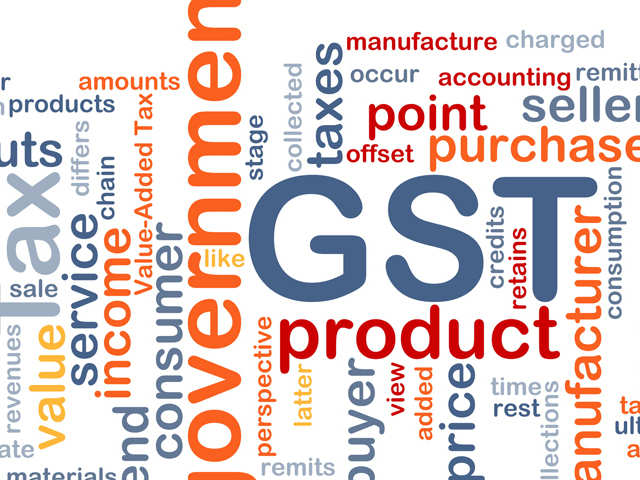The Bharatiya Nagarik Suraksha Sanhita (BNSS) repealing the Code of Criminal Procedure (CrPC) and its impact under the GST Law

–By Hirak Shah, Adv. Gujarat High Court
- Brief Introduction
The Bharatiya Nagarik Suraksha Sanhita (BNSS) represents a significant overhaul of India’s criminal justice system, proposing to replace the colonial-era Code of Criminal Procedure (CrPC) of 1973. While primarily aimed at modernizing and streamlining criminal justice, the BNSS has notable implications for specific legal domains, including Goods and Services Tax (GST) law. Given GST’s reliance on robust enforcement mechanisms to tackle evasion and fraud, the interplay between the BNSS and GST law is crucial.
- Key Differences
Here are the key differences between BNSS and CrPC from the perspective of GST law enforcement:
- Enhanced Use of Technology
- CrPC: Although provisions exist for electronic evidence and digital tools, the CrPC lacks an integrated digital framework. Procedures often remain manual, contributing to delays and inefficiencies in cases involving digital transactions, such as GST fraud.
- BNSS: The BNSS emphasizes technology-driven processes, mandating digital tools for evidence collection, case tracking, and virtual hearings. For GST law, which is inherently digital (e.g., e-way bills, GSTN platform), the BNSS’s framework could facilitate more efficient investigation and prosecution of offenses like invoice fraud and tax evasion.
- Simplified Prosecution Mechanisms
- CrPC: Under the CrPC, initiating prosecutions for GST-related offenses can be cumbersome, requiring approvals from various authorities and adherence to time-intensive procedural norms.
- BNSS: The BNSS proposes simplified processes for launching prosecutions, reducing bureaucratic hurdles. This change could accelerate legal actions against significant GST defaulters, improving compliance and deterrence.
- Revised Arrest and Bail Procedures
- CrPC: The CrPC’s provisions for arrests and bail (e.g., Sections 41 and 437) apply to GST violations based on severity. Cases involving tax evasion above INR 5 crores are generally non-bailable, which can lead to excessive enforcement actions.
- BNSS: The BNSS aims to ensure proportionality in arrests and bail procedures, emphasizing accountability and checks on arbitrary detentions. For GST law, this could offer taxpayers greater protection from misuse of arrest provisions while maintaining strict enforcement against willful defaulters.
- Clarity in Compounding of Offenses
- CrPC: The CrPC allows compounding for specific offenses, but guidelines are ambiguous when applied to economic crimes like GST violations, leading to inconsistent practices.
- BNSS: The BNSS proposes clear, streamlined guidelines for compounding offenses. In GST cases, this could encourage resolution of minor disputes without lengthy litigation, benefiting both taxpayers and the judicial system.
- Enhanced Accountability of Enforcement Officers
- CrPC: Instances of abuse of power by enforcement officials are common under the CrPC, especially in tax-related cases, where arbitrary actions can harm businesses.
- BNSS: The BNSS introduces safeguards such as mandatory video recordings of arrests and digital case monitoring, ensuring transparency and reducing opportunities for abuse in GST investigations.
- Time-Bound Resolution of Cases
- CrPC: GST-related criminal cases often face significant delays under the CrPC due to overburdened courts and procedural complexities.
- BNSS: With provisions for time-bound case management and faster digital workflows, the BNSS has the potential to expedite GST-related criminal proceedings, enhancing justice delivery and revenue recovery.
- Improved Coordination Between Authorities
- CrPC: Coordination between tax authorities and law enforcement agencies under the CrPC framework can be fragmented, leading to duplication of efforts and delays in GST fraud investigations.
- BNSS: By focusing on inter-agency coordination and data sharing, the BNSS facilitates a more cohesive approach to handling GST-related offenses, ensuring swifter action and reduced systemic inefficiencies.
- Conclusion
The BNSS heralds a transformative shift in India’s criminal justice system, offering several improvements over the CrPC, particularly in handling economic offenses under GST law. By prioritizing technology, accountability, and efficiency, the BNSS aligns well with the needs of a digital tax regime. However, the success of these reforms will depend on their practical implementation and the adaptability of GST enforcement mechanisms to the new procedural framework. If effectively executed, the BNSS could significantly bolster the fight against GST evasion while protecting taxpayers’ rights.
The views prescribed hereinabove are strictly based on the author’s own interpretation of the legal provisions and their implications and do not have any legal impact.
(Author is a well known advocate practicing in Gujarat High Court in Taxation Matters and other allied laws)






